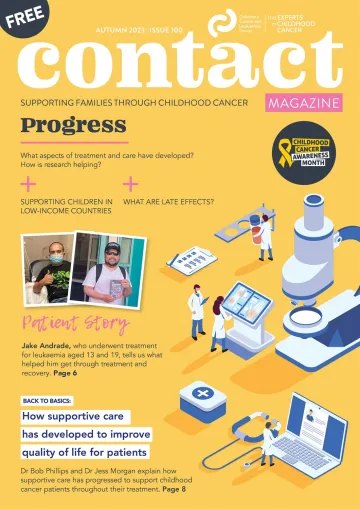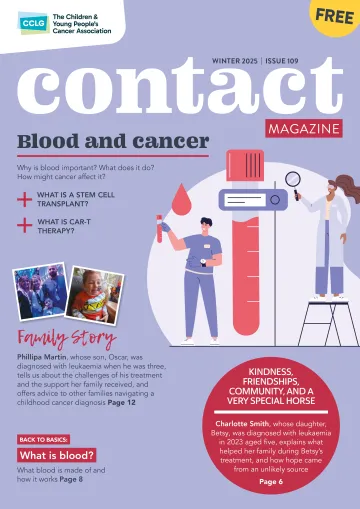Nicky Webb, is a clinical nurse specialist for the long-term follow-up of survivors of childhood cancer at the East Midlands Children and Young Person’s Integrated Cancer Service. She is also a CCLG member and plays an active role in CCLG’s specialist Late Effects Group.
What are late effects?
It’s estimated that there are 40,000 survivors of childhood cancer now living in the UK and two thirds of them will experience at least one adverse long-term side effect – known as ‘late effects’ – as a consequence of their cancer or its treatment.
A late effects can be defined as: “An adverse health related problem that occurs months to years after completion of treatment that result either from the treatment or the disease itself.”
Late effects can be divided into two main groups:
- Physical effects, such as damage to a body organ or system such as the pituitary gland, loss of a limb or sight
- Psychosocial effects range from altered body image, self-esteem, impact on education, frailty and overall impact on the individual’s mental health
Why do we have long-term follow-up/late effects services and why are they important?
As children and young people approach independence and start taking control of their own personal life choices, it’s highly important that they’re given information surrounding their diagnosis and treatment so they can make informed choices. Monitoring late effects ensures early detection of potential problems and intervention, if necessary. Key professionals working within late effects provide ongoing psychological support and link to other specialist mental health services.
Therefore, long-term follow-up services not only educate the young person, but also provide them with vital information which helps to detect and manage any problems caused by cancer and/or its treatment to ensure the best possible quality of life for childhood cancer survivors.
What can parents/patients do to help their child or themselves?
Sadly, we know that having cancer once increases your risk of developing cancer again, especially as survivors age. However, we also know that our life choices can also increases everybody’s risk of cancer and also of other chronic illness. Leading a healthy lifestyle can reduce those risk factors. It’s incredibly important that we encourage families to keep as active as they can from diagnosis and not just in follow-up, and to support ongoing healthy eating habits throughout.
Coming soon
Our Living Beyond Childhood Cancer Facebook group will provide a safe space for childhood cancer survivors to come together for mutual support. The group will be open to survivors over the age of 18. Keep an eye out on our social media for more information about the group!
Have a question to ask one of our experts?
Please get in touch by emailing info@cclg.org.uk or via DM on our social channels.
From Contact magazine issue 100 - Autumn 2023


